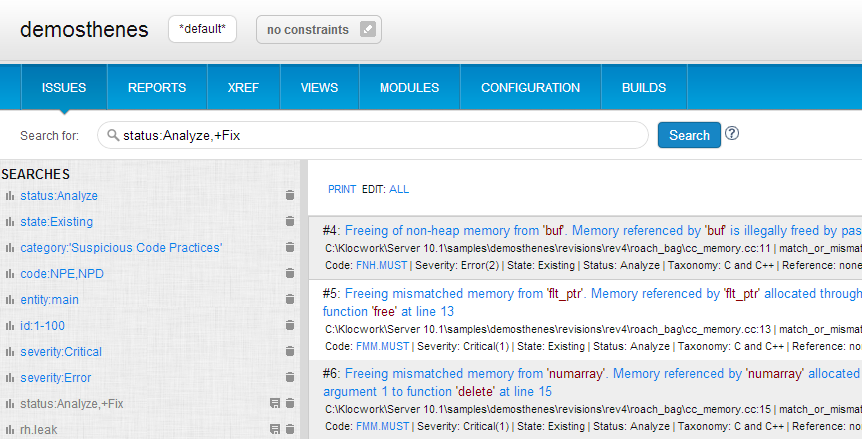You can get to a list of issues by:
- drilling down in a report
- searching
- clicking a link on the projects list
If you're not already looking at a list of issues, here's the easiest way:
- Log into Klocwork Static Code Analysis, if you haven't already done so.
- You see a list of projects for which you have permissions on the current Klocwork Server host and port.
- For any project in the list, click the New or Open issues link.
-

Understanding the issue list
Here's an issue list for the open-source project CVS:

What you see is controlled by:
- the current view, shown beside the project name. In our example, the project name is demosthenes and we are using the default view (*default*). In this example, the default view has no constraints. Constraints are shown to the right of the view name.
- what appears in the Search for field. In our example, because we clicked Open issues, the Search field reads: status:+Analyze,+Fix. If the build is not specified, issues from the most recent build are shown. See Searching in Static Code Analysis for more information on search syntax.
- whether SmartRank is turned on or off.
- how the issue list is sorted. You can sort by ID, severity, state, status, code, file, entity or owner.